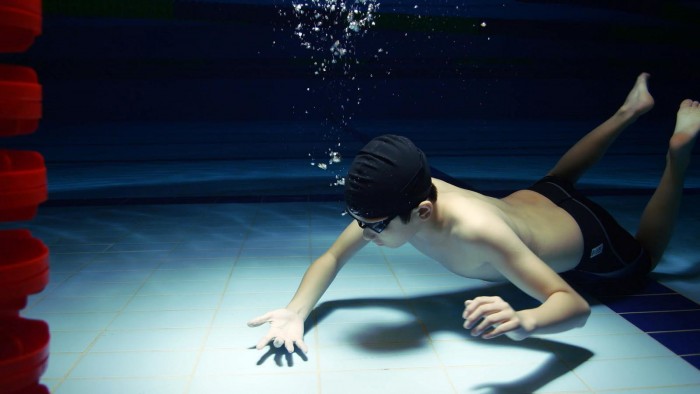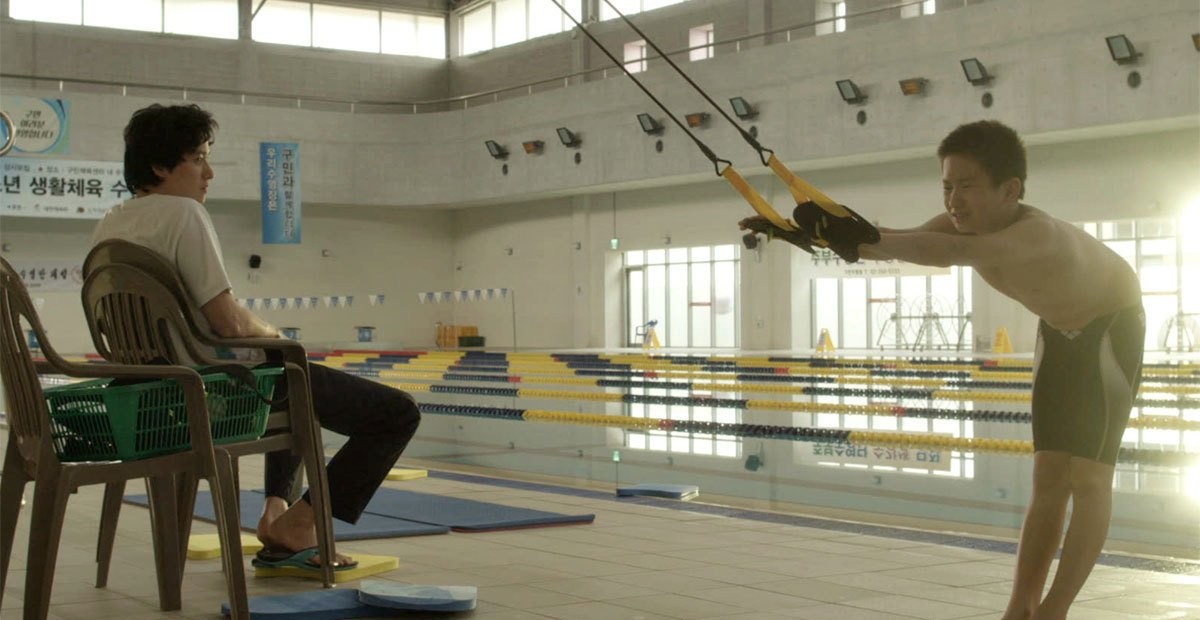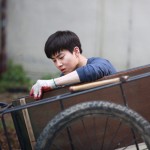By David Pountain
London Korean Film Festival review
Watch more Korean films on FilmDoo
Director: Ji-Woo Jung
Ji-woo Jung’s Fourth Place is a harsh and compelling, if fairly predictable tale characterised by well-intentioned yet destructive forms of passion. While the film could certainly afford to delve further into its implicit suggestions of a culture that promotes winning at all costs, it is nonetheless a tense, sympathetic and psychologically astute depiction of how the wrong kind of encouragement can prove poisonous to a young and vulnerable mind.
The film opens in attractive monochrome as a promising but immature young athlete risks squandering his time and potential on gambling and drink, though it’s easy to see why swimmer Gwang-su would want to escape into such habits once he’s brutally beaten by his coach for skipping training. Jump to the colourful present and Gwang-su is now himself a pessimistic coach working at the local swimming pool. He is approached by determined mother Jeong-ae, who seems far more emotionally invested in her son Jun-ho’s competitive success than the young boy himself, who claims to swim just for fun. From here, we see how the aspirations and regrets of one generation can prove harmful to the next as Jun-ho suffers the physical abuse of his new coach and the emotional abuse of his obsessive mother while the joy of swimming quickly drains from his spirit.

Depending on which way you look at it, the greatest flaw of Fourth Place is either the damaging familiarity of its story, or the fact that Ji-woo Jung’s interpretation of this story is generally too literal-minded for the film to fulfil its potential for layered, allegorical meaning in a way that would have helped it to transcend this familiarity. Consequently, while the film is never less than perfectly watchable thanks to its consistently competent execution, its emotional and intellectual impact are both regularly diluted by the feeling that you’ve seen it all before – be it in, say, 1993’s Searching for Bobby Fischer, the more recent critical darling Whiplash or that episode of The Simpsons where Bart plays miniature golf.
Fortunately, Fourth Place’s dramatically staler moments are redeemed in part by its ongoing, deadpan sense of humour, which endearingly balances out the film’s more uncomfortable scenes. The rest of the film’s redemption comes in its touching and bittersweet closing minutes, which resolve Gwang-su’s arc on a poignantly ambiguous note before sending Jun-ho off in a dazzling and haunting yet optimistic final scene. Ji-woo Jung’s visuals are at their most entrancing whenever he ventures into Jun-ho’s private world beneath the pool surface and he saves his most beautiful aquatic imagery for the moment that his protagonist frees himself from outside pressures to become master of his own domain, concluding this uneven but worthwhile feature on a triumphant note – albeit one that possibly hints at new, internal struggles to come.
The 2016 London Korean Film Festival runs 3-27 November. Find the full programme here.
To bring Fourth Place to your region, cast your DooVote here!
Recommended Viewing on FilmDoo:








